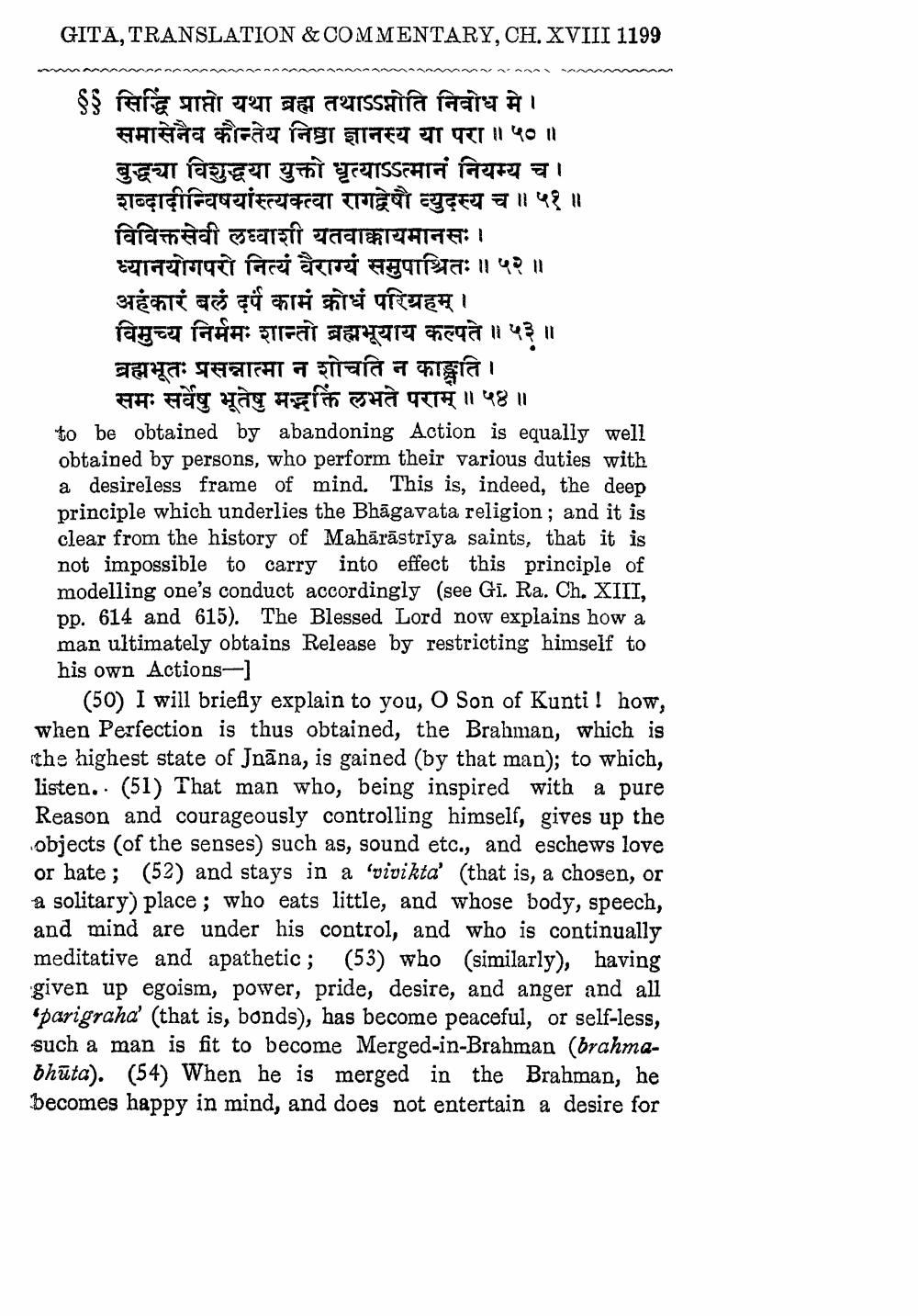________________
GITA, TRANSLATION & COMMENTARY, CH. XVIII 1199
$$ सिद्धि प्राप्तो यथा ब्रह्म तथाऽऽप्नोति निवोध मे।
समासेनैव कौन्तेय निष्ठा ज्ञानस्य या परा ॥ ५० ॥ बुद्ध्या विशुद्धया युक्तो धृत्याऽऽत्मानं नियम्य च । शब्दादीन्विषयांस्त्यक्त्वा रागद्वेषौ व्युदस्य च ॥५१॥ विविक्तसेवी लध्वाशी यतवाक्कायमानसः। ध्यानयोगपरो नित्यं वैराग्यं समुपाश्रितः॥५२॥
अहंकारं बलं दर्प कामं क्रोधं परिग्रहम् । विमुच्य निर्ममः शान्तो ब्रह्मभूयाय कल्पते ॥५३॥ ब्रह्मभूतः प्रसन्नात्मा न शोचति न काङ्क्षति ।
समः सर्वेषु भूतेषु मद्भक्ति लभते पराम् ॥ ५४॥ to be obtained by abandoning Action is equally well obtained by persons, who perform their various duties with a desireless frame of mind. This is, indeed, the deep principle which underlies the Bhāgavata religion; and it is clear from the history of Mahārāstrīya saints, that it is not impossible to carry into effect this principle of modelling one's conduct accordingly (see Gi. Ra. Ch. XIII, pp. 614 and 615). The Blessed Lord now explains how a man ultimately obtains Release by restricting himself to his own Actions-]
(50) I will briefly explain to you, O Son of Kunti! how, when Perfection is thus obtained, the Brahman, which is the highest state of Jnāna, is gained (by that man); to which, listen.. (51) That man who, being inspired with a pure Reason and courageously controlling himself, gives up the objects (of the senses) such as, sound etc., and eschews love or hate; (52) and stays in a 'vivikta' (that is, a chosen, or a solitary) place ; who eats little, and whose body, speech, and mind are under his control, and who is continually meditative and apathetic; (53) who (similarly), having given up egoism, power, pride, desire, and anger and all 'parigraha' (that is, bonds), has become peaceful, or self-less, such a man is fit to become Merged-in-Brahman (brahmabhūta). (54) When he is merged in the Brahman, he becomes happy in mind, and does not entertain a desire for




